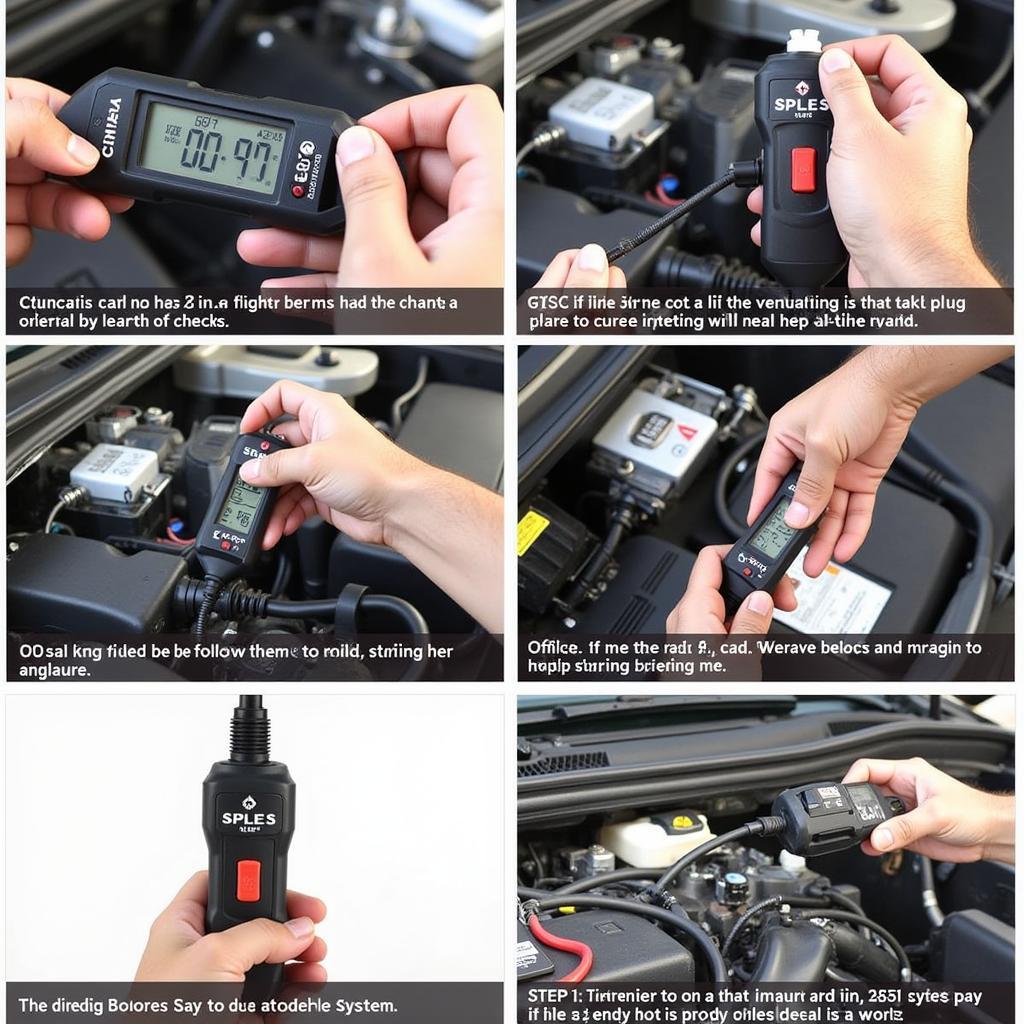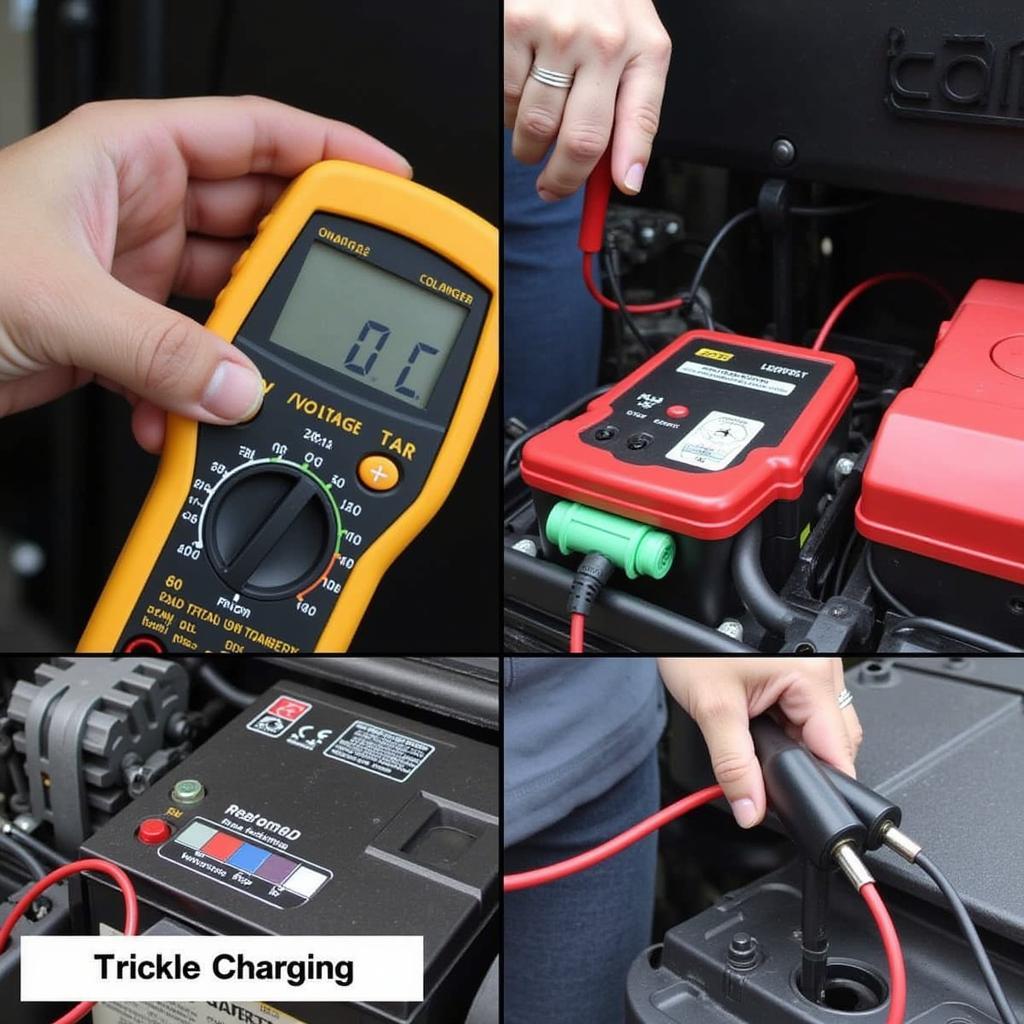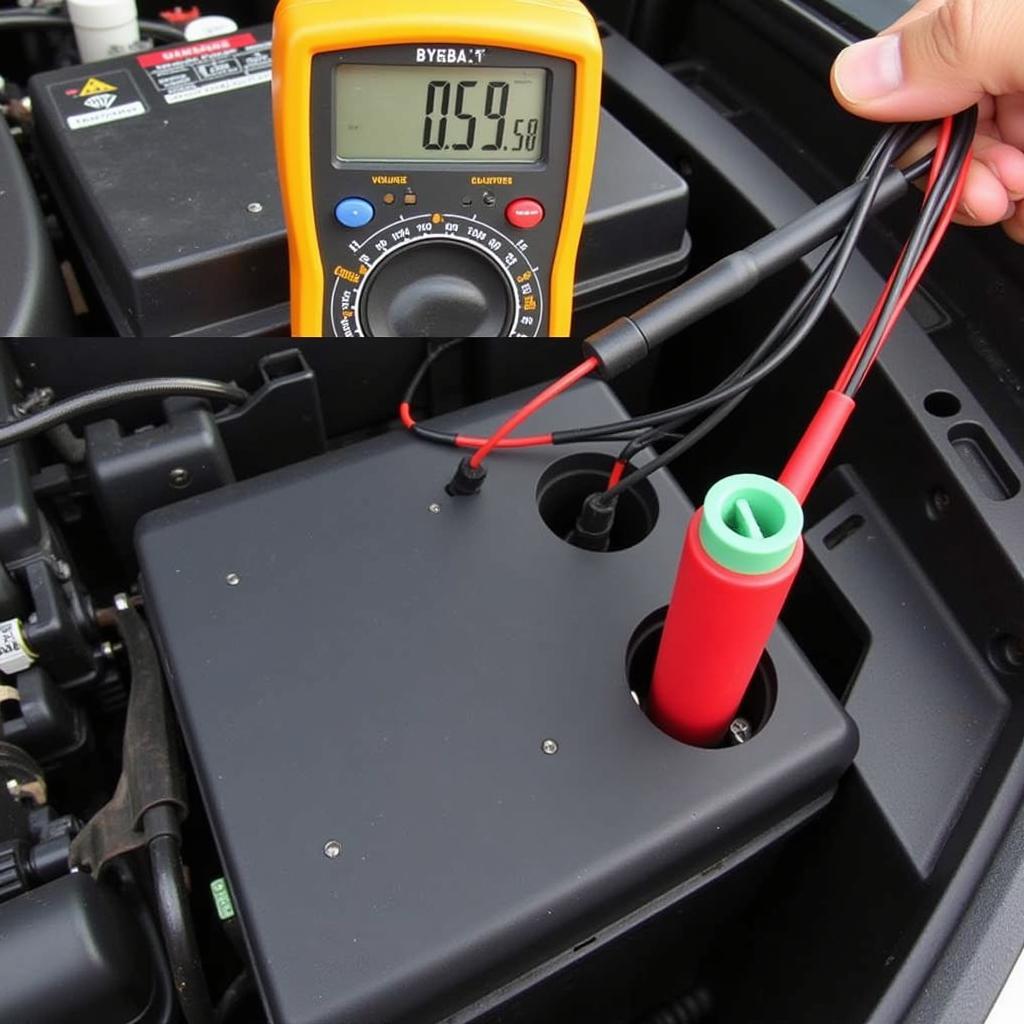If your car is not starting, it can be a frustrating and inconvenient experience. This guide will walk you through common causes and solutions, from simple checks to more advanced diagnostic techniques, empowering you to troubleshoot the problem effectively.
Common Reasons Why Your Car Won’t Start
There are several reasons why your car might refuse to start. These range from simple issues like a dead battery to more complex problems requiring professional attention. Understanding the potential culprits can save you time and money.
Battery Blues: Is Your Battery Dead or Dying?
A dead battery is the most common reason for a car not starting. Symptoms include dimming headlights, a clicking sound when you turn the key, and no response from the starter.
- Check the battery terminals: Corrosion can prevent the battery from delivering power. Clean them with a wire brush and baking soda solution.
- Jump-start your car: If the battery is dead, jump-starting can get you back on the road. Follow the correct procedure to avoid damage.
- Test the battery: A battery test will determine if your battery is holding a charge. A weak battery may need to be replaced.
Starter Troubles: Is Your Starter Motor Malfunctioning?
If your battery is fine, the starter motor could be the problem. A faulty starter might produce a clicking sound or a whirring noise, but the engine won’t turn over.
- Tap the starter: Sometimes, a gentle tap can dislodge a stuck starter solenoid.
- Check the starter connections: Loose or corroded connections can prevent the starter from receiving power.
Fuel System Failures: Is Your Car Getting Enough Fuel?
A lack of fuel, a clogged fuel filter, or a faulty fuel pump can prevent your car from starting.
- Check the fuel gauge: Make sure you have enough fuel in the tank. It might sound obvious, but it’s easily overlooked.
- Listen for the fuel pump: When you turn the key to the “on” position, you should hear a faint whirring sound from the fuel pump.
- Check the fuel filter: A clogged fuel filter restricts fuel flow to the engine.
Ignition System Issues: Can Your Car Ignite the Fuel?
The ignition system creates the spark that ignites the fuel-air mixture in the cylinders. A faulty ignition switch, coil, or spark plugs can prevent your car from starting.
- Check the ignition switch: Try turning the key to different positions to ensure the switch is functioning correctly.
- Test the spark plugs: Remove a spark plug and check for spark using a spark plug tester.
 Checking Spark Plugs in a Car Engine
Checking Spark Plugs in a Car Engine
Beyond the Basics: Advanced Diagnostics and Remote Solutions
Sometimes, the issue might be more complex, such as a faulty ECU (Engine Control Unit) or other electronic components. In such cases, advanced diagnostic tools and potentially remote programming or software updates may be necessary.
“Modern vehicles rely heavily on sophisticated electronics. Remote diagnostics and software updates are becoming increasingly common for resolving complex starting issues.” – John Smith, Automotive Electrical Engineer at AutoTech Solutions.
Conclusion: Getting Your Car Back on the Track
If your car is not starting, don’t panic. By systematically checking the common culprits – battery, starter, fuel system, and ignition system – you can often pinpoint the problem and get your car running again. If the issue is more complex, remember that advanced diagnostic services, including remote programming and software installation, are available to address even the most challenging starting problems.
“Remote diagnostics can save car owners valuable time and money by quickly identifying and resolving complex electronic issues without the need for a physical visit to a repair shop.” – Maria Garcia, Senior Diagnostic Technician at RemoteAutoFix.
FAQ: Frequently Asked Questions About Car Starting Problems
- What should I do if my car won’t start and I hear a clicking sound? This likely indicates a dead or weak battery or a faulty starter. Try jump-starting the car. If that doesn’t work, have the battery and starter tested.
- Why does my car sometimes start and sometimes not? Intermittent starting problems can be tricky. They could be caused by a loose connection, a failing fuel pump, or a faulty sensor.
- Can extreme temperatures affect my car’s ability to start? Yes, both extreme heat and cold can impact battery performance and other engine components.
- How can I prevent my car from not starting? Regular maintenance, including battery checks, terminal cleaning, and fuel system inspections, can help prevent starting issues.
- When should I call a professional mechanic? If you’ve tried the basic troubleshooting steps and your car still won’t start, it’s time to seek professional help.
- What is remote car diagnostics? Remote diagnostics allows technicians to access your car’s computer system remotely to diagnose and sometimes even fix problems without physically being present.
- Is remote car programming safe? Yes, reputable remote programming services use secure connections and authorized software to ensure the safety and integrity of your car’s systems.



